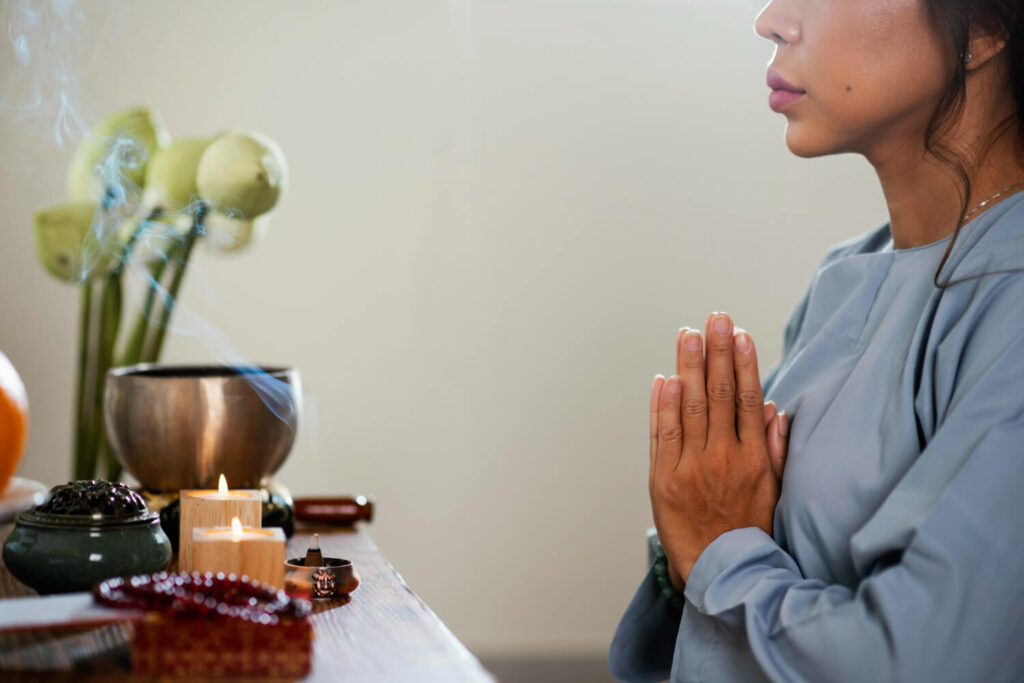Rituals have been an essential part of human civilization for centuries, serving as a bridge between the divine and the earthly. In many religious traditions, rituals are not just formal routines but meaningful practices that reinforce personal faith and communal identity. This article explores the importance of rituals in different faiths, their psychological and spiritual benefits, and how they continue to shape believers’ lives in the modern world.
What Are Religious Rituals?
Rituals refer to structured actions or ceremonies that hold symbolic meaning within a specific faith tradition. These can range from daily prayers to elaborate ceremonies marking important life events such as birth, marriage, and death. While the nature of rituals varies, their purpose remains consistent: to connect believers with the divine and create a sense of belonging to a larger religious community.
Types of Religious Rituals
- Daily and Personal Rituals:
- Examples: Praying five times a day in Islam, morning devotion in Christianity, or yoga and meditation in Hinduism.
- Purpose: These rituals help individuals maintain a sense of discipline and mindfulness, anchoring their faith in everyday life.
- Communal Worship and Ceremonies:
- Examples: Sunday church services, synagogue gatherings, or mosque congregations.
- Purpose: Participating in collective worship strengthens the bonds between members of a religious community and creates shared experiences of faith.
- Rites of Passage:
- Examples: Baptism, Bar/Bat Mitzvah, marriage ceremonies, and funerals.
- Purpose: These rituals mark significant milestones in a believer’s life, offering spiritual guidance and blessings for new phases of existence.
- Seasonal and Festival Rituals:
- Examples: Ramadan fasting, Easter celebrations, Diwali, or Yom Kippur.
- Purpose: These events allow believers to reflect on their faith’s core teachings and celebrate key moments in their religious history.
How Rituals Strengthen Faith
- Reinforcing Beliefs through Repetition
Rituals encourage consistent engagement with religious practices, which reinforces core beliefs. For instance, the repetition of prayers helps believers internalize spiritual truths and develop a deeper connection with God or the divine. - Creating a Sense of Sacredness
Rituals mark certain actions or times as sacred, helping believers pause from the mundane and focus on the divine. Lighting candles during prayer or fasting can transform ordinary activities into meaningful, spiritually enriching moments. - Fostering a Sense of Belonging
Participating in communal rituals brings people together, fostering a sense of unity and belonging. Knowing that others share in the same practices creates a collective identity that strengthens faith. - Providing Emotional Comfort and Structure
During challenging times, rituals offer emotional comfort and stability. Funerary rites, for example, help grieving families cope by providing a structured way to mourn, while wedding ceremonies offer joy and blessings for couples starting a new chapter.
The Psychological Impact of Rituals
Studies in psychology suggest that rituals can have positive effects on mental health by reducing anxiety and increasing a sense of control. Repetitive actions such as prayer or meditation trigger relaxation responses, which promote emotional well-being. Additionally, rituals performed during uncertain times (like illness or grief) offer comfort by providing familiar routines.
Challenges to Ritual Practice in the Modern World
Despite their significance, rituals face challenges in modern secular societies. The fast-paced nature of contemporary life leaves little room for reflection and spiritual practices. Additionally, younger generations may feel disconnected from traditional rituals, viewing them as outdated or irrelevant.
However, many faith communities are finding ways to adapt rituals to modern contexts, such as virtual prayer meetings or simplified ceremonies. These adaptations ensure that rituals remain meaningful even in an increasingly digital world.
Rituals serve as powerful tools that sustain and strengthen religious faith across cultures and traditions. Whether through personal prayer, community worship, or seasonal festivals, these practices provide spiritual enrichment, emotional support, and a sense of belonging. In a rapidly changing world, rituals continue to offer believers a pathway to reconnect with their faith, fostering inner peace and collective unity.


